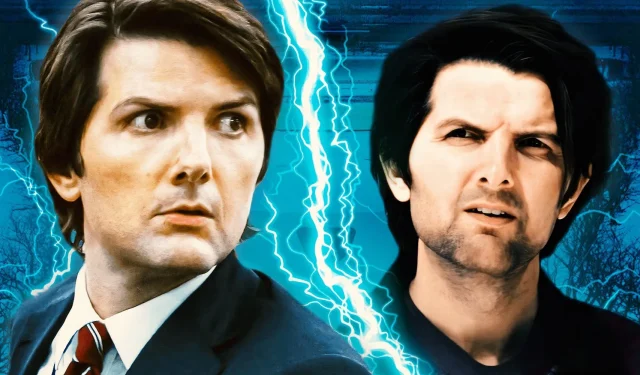Warning: Spoilers for the finale of Severance Season 2 are included in this article.
Analyzing the Controversial Finale of Severance Season 2
The finale of Severance Season 2 stirred intense debates, particularly around Mark S. and the choices he made. While many fans expressed frustration at his decision, it is essential to understand that the controversy revolves around deeper themes that the series has been exploring since its inception. This climactic episode not only propelled the storyline forward but also introduced significant thematic challenges, marking another pivotal moment in the series.
The Dilemma of Mark S. in the Finale
In the closing moments of the finale, Mark faces a critical choice; he has safely guided Gemma to a stairwell leading out of Lumon. However, he stands at a crossroads, torn between two vital relationships. In front of him is Gemma, the wife of his Outie, and behind him is Helly, the individual with whom he has formed a deep bond during his time at Lumon. Mark’s decision boils down to either allowing Gemma to reunite with her husband, effectively sacrificing his own emotional connection, or opting to stay with Helly and fight for their relationship.
After much contemplation, Mark ultimately chooses to be with Helly. This choice has elicited strong reactions from viewers, with many labeling Mark’s Innie as selfish and expressing disappointment that the narrative seems to undermine the long-standing relationship he has with Gemma. Critics argue that the true “endgame”lies in the relationship between Outie Mark and Gemma, leading to concerns over what this could mean for the future of the characters as the story progresses into Season 3.
Understanding Mark’s Choice: A Reflection of Theme
It’s Not Just a Simple Choice
While the outrage towards Mark’s decision is understandable, it overlooks the core message of Severance. One of the series’ primary themes has always been the notion that Innies are just as valid and deserving of respect as their Outies. The show meticulously develops this idea, notably through exploring the complex relationship dynamics between these two halves of a person. Audiences who criticize Innie Mark’s choice miss this fundamental aspect of the character’s development.
In Season 2, the tension escalates as the Innies strive for recognition and validation, battling against a system that commodifies their existence. If Mark had chosen to help Gemma instead of following his heart, it would represent a rejection of his own identity and emotional truth, succumbing to pressures from a world that does not see the Innies as whole individuals.
The Importance of Outie Mark’s Conversation
Revealing the Underlying Disrespect
The conversation between Outie Mark and Innie Mark plays a crucial role in this narrative. During their interaction via video call, Outie Mark mispronounces Helly’s name and exhibits an overall lack of respect towards Innie Mark’s feelings and experiences. This misalignment serves to highlight how deeply ingrained the dismissal of Innies can be, portrayed effectively through Outie Mark’s condescending attitude.
Outie Mark’s monologue, where he pushes for trust and sacrifice, further underscores the manipulation at play. The audience is acutely aware of the ulterior motives that drive Outie Mark; he wants to save Gemma, not for the honor of his Innie counterpart, but for his own personal interests. This dynamic ultimately informs Innie Mark’s choice, solidifying his understanding of his own reality and worth.
The Controversy Validates the Series’ Impact
Challenging the Sci-Fi Genre
The intense reactions to the Season 2 finale only reaffirm that Severance is effectively challenging its viewers. The series is a unique blend of sci-fi and philosophical exploration, asking hard questions about identity, autonomy, and the nature of relationships. Season 2 has pushed these narrative elements to their extremes, forcing audiences to confront their biases and perceptions.
As Severance continues to stir debate, viewers are prompted to reflect on the realities of both Innies and Outies, highlighting the complexity of human experience—one that refuses to be easily classified. This discourse indicates that the series has resonated with its audience in meaningful ways, successfully portraying Innies as people with their own desires and motivations.


